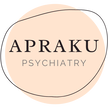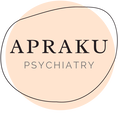|
This blog post was reviewed and approved for publication by Abena Apraku M.D., a Board-certified psychiatrist at Apraku Psychiatry.
The world is heavy! Just ask Atlas, the titan from Greek mythology tasked with carrying the globe on his broad shoulders. Today, with 24/7 global news, many of us have unwittingly turned into modern-day Atlases, with the emotional weight of many crises on our less-than-godly shoulders.
But there's a twist. Unlike Atlas, we actually choose to shoulder this weight. We subscribe to the push notifications, we scroll through the headlines, we dive into the comment sections. This self-imposed load can be a risky business for our mental health. So how can we lighten our burden without losing our connection to the world? Let's delve into the complexities of media overload. The Mental Toll of Excessive News ConsumptionThe news today doesn't sleep, and neither does our intake of it. There's a term for this – information overload. And it's taking a toll on our mental health. Consider the following examples:
The common theme here? Crisis. And lots of it. The focus of the news media on the dramatic, the alarming, and the negative can distort our perception of reality, skewing it towards the chaotic and the dangerous. Let's be clear: bad things do happen. But they're generally not the norm. Think about it: when was the last time you saw a headline like "Majority of Flights Land Safely" or "Most People Enjoy Peaceful Day at Home"? Sounds absurd, right? That's because the news often emphasizes the dramatic over the mundane. Furthermore, we're not passive spectators in this spectacle of sensationalism. We're often active participants. We click, we share, we comment. And yet the more we consume, the heavier our mental burden becomes. We start to carry the world's troubles on our shoulders, a load that can feel impossible to bear. It's a high price to pay for staying up-to-date. The Antidote to the Mental Health MinefieldSo, what's the antidote to this mental health minefield? Mindful consumption, with the goal of staying informed without becoming inundated. Later, we’ll discuss practical proposals for how to achieve this Zen state of mindful news consumption. But first, we’ll consider the structure of modern news media and how its peculiar design is a hazard for mental health. Top Highlights
How Modern News Media Impacts Mental HealthUnderstanding the structure of modern news media is crucial for developing healthier consumption habits. Today's media landscape, particularly online, is designed to capitalize on our attention. Whether it's CNN or Fox News, Twitter or Facebook, the platforms we use to consume news are in a battle to keep us engaged. But what does this mean for our mental health? Let's explore. The Illusion of ChoiceFirstly, there's the illusion of choice. Yes, we can choose our news channels, decide who to follow on social media, and pick the websites we visit. But in reality, these platforms are master curators of content, using complex algorithms to tailor what we see based on our past behavior, our likes, and our shares. Consider how your Facebook feed is populated. The algorithm prioritizes posts from friends you interact with regularly, topics you've shown an interest in, and content that you've engaged with in the past. The same holds true for news platforms. The more you click on stories about crime, for instance, the more such stories will pop up on your feed. This reinforcement of our existing interests and biases can lead to an echo chamber effect, intensifying fears, anxieties, and biases. The Sensationalism TrapModern media is also characterized by sensationalism. News outlets prioritize stories that are shocking, controversial, or fear-inducing over those that are balanced or mundane. Sensational stories grab our attention, keep us engaged, and encourage us to share the content, driving up their viewership and ad revenue. Yet overemphasis on the dramatic skews our perception of reality, making the world seem more dangerous and unpredictable than it is. This, in turn, can fuel feelings of anxiety, fear, and helplessness. The Constant UpdatesThe 24/7 news cycle, a product of the digital age, ensures that we're never more than a click or a swipe away from the latest update. While this constant access to information might seem like a boon, it can quickly become a source of stress. The constant bombardment can lead to feelings of overwhelm and exhaustion, negatively affecting our mental health. The Two-Screen PhenomenonFinally, there's the two-screen phenomenon. Today, most of us consume news on two screens: our television sets and our smartphones. Both are gateways to an incessant flow of information, making it difficult to disconnect. This constant connectivity can disrupt our ability to relax, recharge, and reflect, leading to heightened stress levels and potential burnout. In essence, the structure of modern news media is designed to captivate and retain our attention, often at the cost of our mental health. So, how can we navigate this landscape more mindfully? Next, we'll explore strategies for consuming news in a balanced and healthy way. The Art of Mindful News ConsumptionAs we’ve seen, the structure of modern news media and our habitual consumption patterns can negatively impact our mental health. But that doesn’t mean we need to disconnect entirely. Instead, we can practice the art of mindful news consumption. Here's how. Reflect on Your MotivationFirst, understand why you consume news. Is it to stay informed? Satisfy your curiosity? For entertainment? These motivations aren't inherently harmful, but they can guide us toward healthier consumption habits. For instance, if you're consuming news primarily for entertainment, consider diversifying your sources of amusement. If it's to stay informed, focus on quality over quantity, ensuring the information is reliable and useful. Choose Quality Over QuantityIn the digital age, we're often bombarded with high-frequency updates that prioritize immediacy over depth. This can lead to an overload of superficial information and a skewed perception of reality. Try consuming longer-term, more in-depth reporting. Investigative journalism, podcasts and long-form articles often provide a more comprehensive and nuanced view of events. Instead of obsessively tracking the hourly updates on a developing crisis, consider waiting for a daily or weekly summary that provides a more comprehensive overview. This can reduce the anxiety triggered by constant, often fragmented, updates, and can also lead to a better understanding of the issue. Set BoundariesJust as we set boundaries in our personal relationships and work life, we need to set boundaries for our news consumption. This means deciding when and where we consume news. A constant stream of news, especially first thing in the morning or last thing at night, can trigger stress and anxiety, disrupting our sleep and overall well-being. Try designating specific times for news consumption and stick to them. Perhaps this means catching up on the day's events during your lunch break or setting aside time in the evening. The 'where' is equally important. Consuming news in our bedrooms, for instance, can disrupt sleep patterns and create associations between our relaxation spaces and stress. Try to create a separate 'news space' – maybe it's at your desk, or a specific corner of your living room. Practice Digital DetoxFinally, consider incorporating a 'digital detox' into your routine. This might mean designating certain days as 'news-free' or setting aside periods during the day when you disconnect from digital devices altogether. This can give your brain a much-needed break, reducing feelings of overwhelm and allowing you to engage more fully with your immediate environment. Parting Thoughts: Reclaiming the NarrativeAs we conclude this exploration of the mental health impact of excessive news consumption, let's remember that the power to change this narrative rests with us. We are not merely passive receivers of information; we are active participants who can choose how, when, and where we consume news. By incorporating mindful consumption habits, we can better balance our need to stay informed with the imperative of maintaining our mental health. In this information-saturated world, let's strive to navigate the news in a way that empowers rather than overwhelms us. Adopting these strategies won't only lighten the weight of the world on our shoulders, but also transform our relationship with news from a source of stress to a tool for informed engagement. It's about time we took back control of our news consumption, for the sake of our well-being! This blog post is brought to you by Apraku Psychiatry. Apraku Psychiatry is a private practice offering video appointments with Board-certified psychiatrists licensed in multiple states. More blog articles can be found here. To schedule an appointment with one of our psychiatrists, patients can complete the online booking form. Comments are closed.
|
Copyright © Apraku Psychiatry 2024


